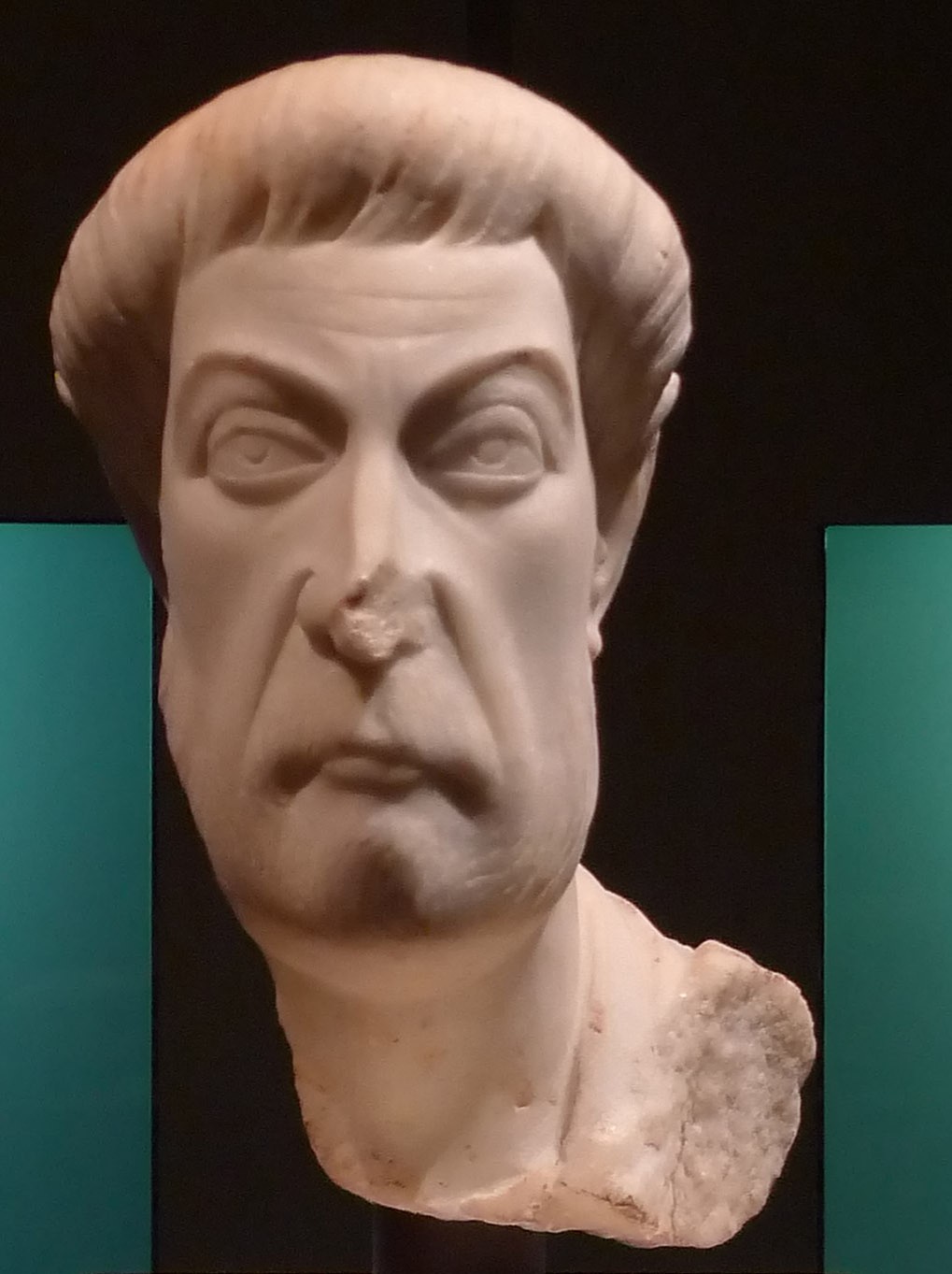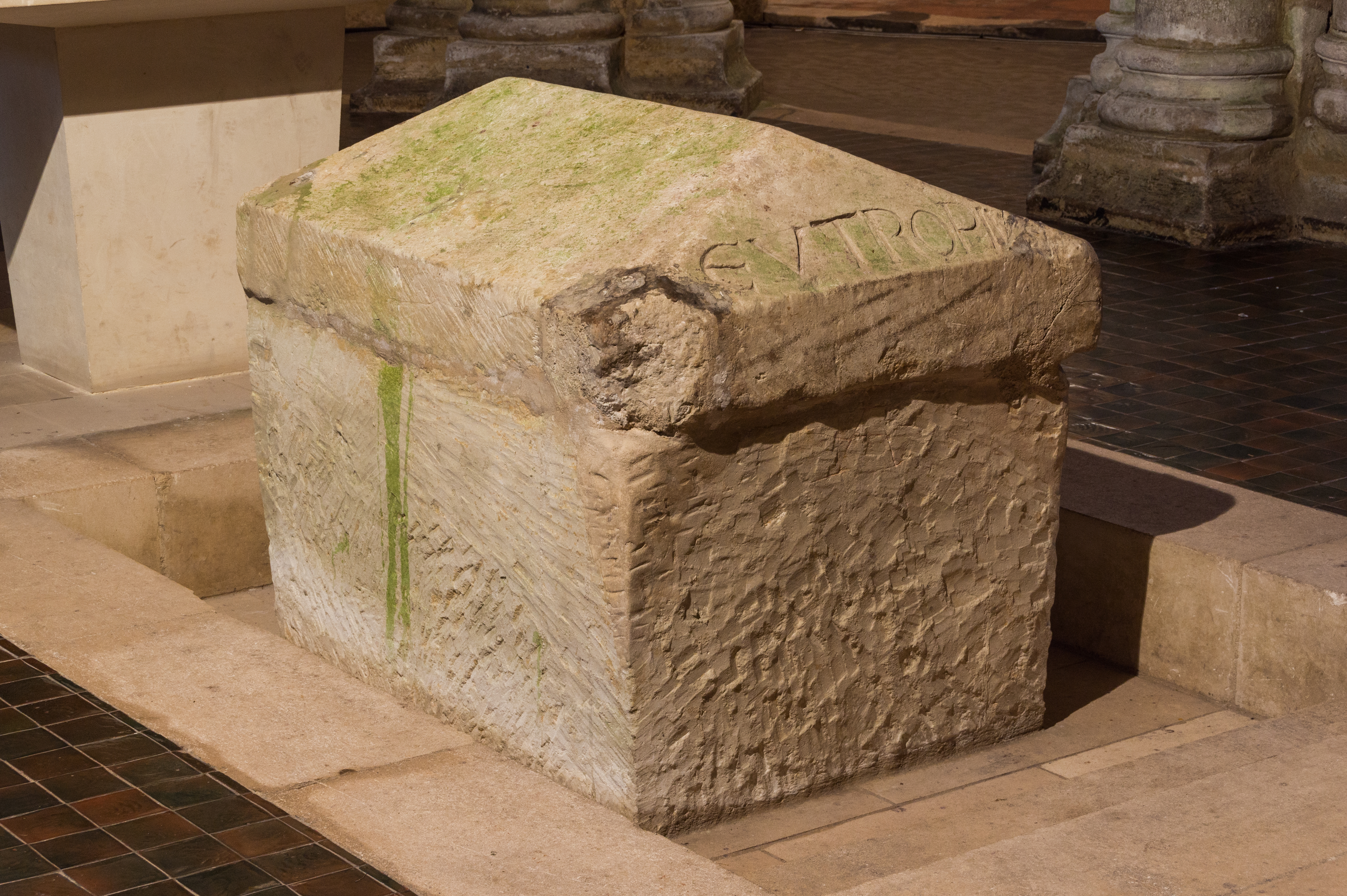|
Eutropius (protospatharios)
Eutropius ( grc-gre, Εὐτρόπιος, Eutrópios, good manner, link=no) is a Greek personal name. It may refer to: * Eutropius (historian), a fourth century Roman historian, and author of an abridgement of Roman history * Eutropius (consul 399), a Roman consul, put to death by the emperor Arcadius in AD 399 Church Fathers * Saint Eutropius of Saintes, a first- or third-century bishop, martyred while attempting to convert the Gauls * Saint Eutropius the Lector, a fifth-century lector in Constantinople martyred for supporting John Chrysostom * Saint Eutropius of Orange Eutropius of Orange (french: link=no, Saint Eutrope; died 475) was bishop of Orange, France, during the 5th century and probably since 463, in succession to Justus. Life Eutropius was born to the nobility, in Marseille, where he spent a wild an ..., fifth-century bishop of Arausio, now Orange in France * Saint Eutropius of Valencia, a Spanish bishop of the late sixth and early seventh century {{hndis ... [...More Info...] [...Related Items...] OR: [Wikipedia] [Google] [Baidu] |
Eutropius (historian)
Eutropius (AD363–387) was a Roman official and historian. His book, ''Breviarium Historiae Romanae'', summarizes events from the founding of Rome in the 8th century BC down to the author's lifetime. Appreciated by later generations for its clear presentation and writing style, the ''Breviarium'' can be used as a supplement to more comprehensive Roman historical texts which have survived in fragmentary condition. Life The exact background and birthplace of Eutropius is disputed. Some scholars claim he was born in Burdigala (Bordeaux) and was a man of medicine. Others, however, most notably Harold W. Bird, have dismissed these claims as being highly unlikely. Eutropius has been referred to as 'Italian' in other sources and supposedly held estates in Asia. Aside from that, his name was Greek, making it unlikely he came from Gaul. Confusion about this has arisen due to the fact that Eutropius was a popular name in late antiquity. He was, however, almost certainly a pagan and remain ... [...More Info...] [...Related Items...] OR: [Wikipedia] [Google] [Baidu] |
Eutropius (consul 399)
Eutropius ( el, Εὐτρόπιος; died 399) was a fourth-century Eastern Roman official who rose to prominence during the reign of emperor Arcadius. He was the first eunuch to become a consul in the Roman empire. Career Eutropius was born in one of the Roman provinces of the middle east, either Assyria or on the border of Armenia. According to Honorius' court poet Claudian, who composed a satirical invective against Eutropius due to the latter's hostility to Claudian's patron, Stilicho, Eutropius served successively as a catamite, pimp, and body-servant to various Roman soldiers and nobles, before winding up among the domestic eunuchs of the imperial palace. After Theodosius' death in 395 he stood at the head of a faction opposed to the powerful Praetorian Prefect of the east, Rufinus, and successfully arranged the marriage of the new emperor, Arcadius, to Aelia Eudoxia, the daughter of general Bauto having blocked an attempt by Arcadius' chief minister to increase his po ... [...More Info...] [...Related Items...] OR: [Wikipedia] [Google] [Baidu] |
Eutropius Of Saintes
Saint Eutropius of Saintes (french: Saint Eutrope) is venerated as the first bishop of Saintes, France. According to tradition, he was a Roman or a Persian of royal descent; further information will be found in R Couffon, "Notes sur les cultes de saint Jacques et de saint Eutrope en Bretagne." ''Memoires de la Société historique de Bretagne'', 1968. who was sent to evangelize Gaul either by Saint Clement in the 1st century or by Pope Fabian in the 250s as a companion of Saint Denis. He lived as a hermit near Saintes and converted to Christianity the governor's daughter, Saint Eustella or Eustelle. According to tradition, the governor was so enraged by his daughter's conversion that he had both her and Eutropius killed. Eutropius was killed by having his head split open with an axe. Gregory of Tours mentions the tradition of Eutropius’ martyrdom in his work, but also notes that before Bishop Palladius of Saintes translated Eutropius’ relics around 590 to the Romanesque ... [...More Info...] [...Related Items...] OR: [Wikipedia] [Google] [Baidu] |
Eutropius The Lector
Saints Tygrius and Eutropius (died 405) were two early Roman martyrs who supported Saint John Chrysostom at the time of his exile. Eutropius was tortured and died, while Tygrius was exiled, but both are considered martyrs. Their feast day is 12 January. Lives Tygrius and Eutropius were supporters of the exiled Saint John Chrysostom, and were arrested on false charges of trying to burn down the cathedral in Constantinople. Eutropius was tortured and died of his injuries in 405, while Tygrius was exiled to Asia Minor. Tygrius, priest, and Eutropius, lector, who suffered in the time of the emperor Arcadius (r. 383–408), are honoured on 12 January. Butler's account The hagiographer Alban Butler wrote, Doney's account Mgr. Doney, in the ''Grande vie des saints'' (1872) wrote, Notes Sources * * * * {{Authority control Saints from Constantinople 405 deaths Year of birth unknown ... [...More Info...] [...Related Items...] OR: [Wikipedia] [Google] [Baidu] |
Eutropius Of Orange
Eutropius of Orange (french: link=no, Saint Eutrope; died 475) was bishop of Orange, France, during the 5th century and probably since 463, in succession to Justus. Life Eutropius was born to the nobility, in Marseille, where he spent a wild and wasted youth. According to tradition, he was converted by his wife and after her death was ordained a deacon by Eustochius. He became Bishop of Orange, succeeding Justin. At first, he was overwhelmed by the magnitude of the work he would have to do and fled. A man of God named Aper convinced him to return and devote himself to tending his flock. He became famous, among other things, for his extreme devotion. During his episcopate, which lasted about twelve years, he did not hesitate to devote himself to many manual tasks, sometimes in a field where he himself worked with a plough, sometimes at a building site where he carried stones even when the other workers were having their meals. Eutropius corresponded with Pope Hilarius and was ... [...More Info...] [...Related Items...] OR: [Wikipedia] [Google] [Baidu] |

